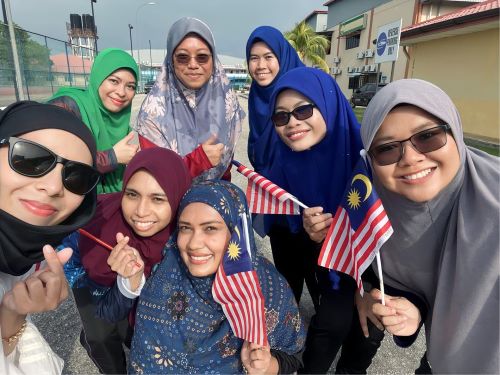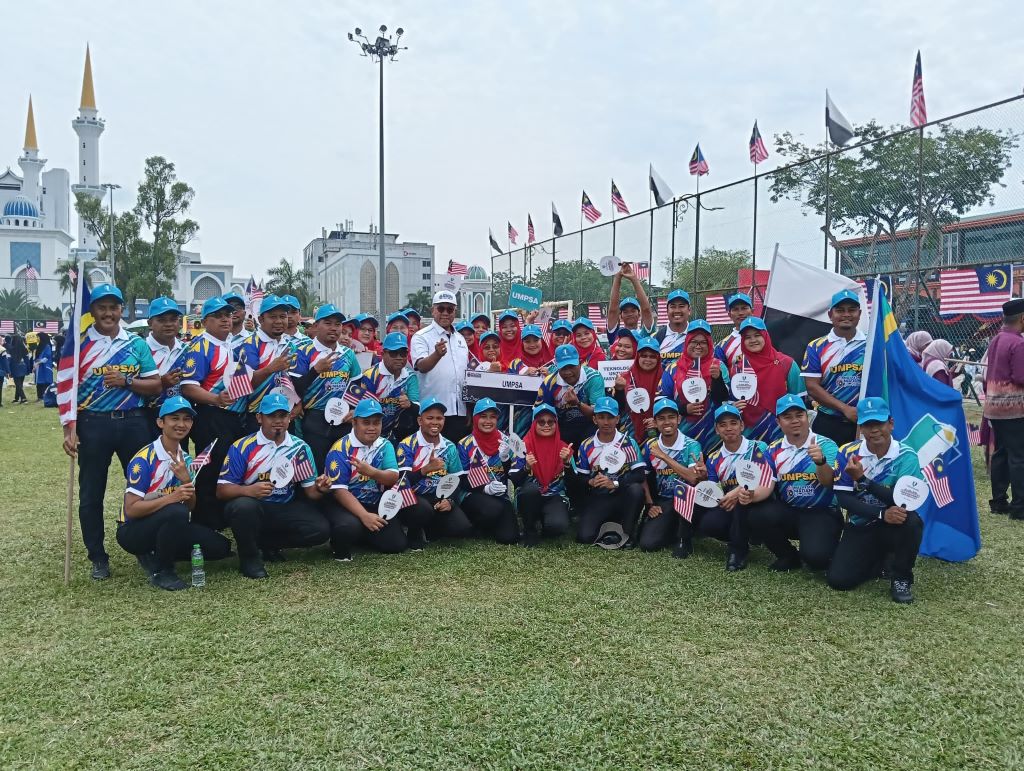The Story of Malaysia
Let’s face it! Malaysia has faced a complex and turbulent journey in its pursuit of stability and progress. The country’s story is marked by unpredictable leadership transitions, shifting political alliances, and widespread public disappointment. For decades, Malaysia has grappled with deep-seated issues of racial and religious polarisation, which have repeatedly undermined efforts to forge national unity and social cohesion. Since gaining independence in 1957, Malaysia has been navigating a landscape of political volatility and ethnic diversity. The country’s foundation was laid with a social contract that sought to balance the interests of its three major ethnic groups: Malays, Chinese, and Indians. However, this delicate balance has been periodically disturbed by shifts in political power and policy changes, leading to tensions and conflicts.
One of Malaysia’s most pressing issues has been the enduring polarisation along racial and religious lines. The nation's multi-ethnic composition, while a source of cultural richness, has also led to challenges in achieving equitable representation and resource distribution. Policies and political rhetoric have at times exacerbated these divisions, creating an environment where racial and religious identities often take precedence over national unity. The repercussions of this polarisation are evident in various aspects of Malaysian society. Economic disparities among ethnic groups, uneven access to educational and employment opportunities, and occasional racial and religious tensions have contributed to a fractured social fabric. Despite numerous efforts to promote integration and harmony, these challenges persist, making it difficult to achieve lasting reconciliation.

Political instability has been another significant factor influencing Malaysia’s development trajectory. Frequent changes in leadership and shifts in political alliances have created a climate of uncertainty. This instability has often led to policy reversals and inconsistent governance, further complicating efforts to address longstanding issues and implement meaningful reforms. High-profile scandals and corruption allegations have further eroded public trust, leading to periods of political upheaval and widespread dissatisfaction. Despite these challenges, Malaysia has demonstrated remarkable resilience and adaptability. The nation’s ability to overcome obstacles is a testament to its dynamic political landscape and the efforts of its people.
But Malaysians, on the whole, are generally tolerant and understanding, finding comfort in areas of life that can bring them together during these challenging times. Despite the underlying tensions, there is a prevailing sense of shared identity and common purpose that surfaces in everyday life. Sports, food, and the arts serve as powerful unifying forces, transcending racial and religious lines to promote unity and tolerance across the nation. Sports, in particular, have a unique ability to foster a sense of belonging and shared identity, whether it's rallying behind the national football team during a crucial match or celebrating the achievements of athletes on the international stage. In these moments of collective pride, differences fade, and the spirit of camaraderie takes centre stage, reminding Malaysians of their commonalities rather than their divisions.
Similarly, Malaysia's rich culinary heritage, with its diverse array of dishes like nasi lemak and char kway teow, reflects the blending of various cultures over generations. The act of sharing a meal and enjoying each other's traditional cuisines fosters an environment of mutual respect and appreciation, making food a symbol of national pride. This shared love for cuisine not only celebrates Malaysia's cultural diversity but also brings people together in a joyous, communal experience. The arts, encompassing music, dance, literature, and visual expressions, also play a significant role in bridging divides. Cultural festivals, theatre productions, and art exhibitions highlight the shared history and values that bind Malaysians together, providing a platform for dialogue, empathy, and understanding. Together, these elements of Malaysian culture help to reinforce the nation's unity amidst its diversity.
However, solely relying on these passions and interests will not lead to unity. It requires a collective effort and a shared will to bridge the deep-rooted divides stemming from racial and religious differences to achieve true unification. Respect for one another's rights, feelings, beliefs, customs, and habits remains a guiding principle. Establishing lasting unity requires more than shared experiences; it necessitates prioritising courteous and open dialogues that can promote empathy and cooperation. Genuine reconciliation involves actively addressing grievances and fostering a culture of inclusion where every voice is heard. It is crucial to remember that unity cannot be imposed; it must be nurtured through inclusivity, education, and mutual understanding.
In this regard, Malaysia's educational institutions play a crucial role in shaping the hearts and minds of future generations. By cultivating values such as acceptance, diversity, and tolerance, schools and universities can lay the groundwork for a more cohesive society. Emphasising the significance of cultural consciousness and empathy in educational curricula can help overcome the stumbling blocks that hinder Malaysia’s progress toward unity. By instilling these values early on, Malaysia can build a society where differences are not merely tolerated but celebrated, and where the collective strength of its diversity propels the nation forward. As Malaysians continue to navigate the challenges of today and tomorrow, it is this spirit of resilience, mutual respect, and shared destiny that will ultimately define the Malaysian story.
The story of Malaysia is not without flaws. It is one of ongoing struggle and resilience. Despite facing significant challenges, ranging from political instability and economic disparities to deep-seated racial and religious polarisation, Malaysia continues to work towards a more inclusive and cohesive society. The nation’s ability to navigate these issues and find common ground through sports, food, and the arts, and its commitment to fostering mutual respect and understanding, reflects its enduring spirit and commitment to progress. As Malaysia moves forward, the lessons learned from its past and the ongoing efforts to address its challenges will shape the future of this diverse and dynamic nation.
Happy Malaysia Day to all Malaysians, and especially to the dedicated students and staff of Universiti Malaysia Pahang Al-Sultan Abdullah! May we continue to strive together to build a brighter future for Malaysia. May Allah protect our beloved homeland, grant us the wisdom to overcome challenges, and guide us on the path of righteousness and success.

Writer is a Senior Language Teacher at Centre for Modern Languages, Universiti Malaysia Pahang Al-Sultan Abdullah (UMPSA).
This is the personal opinion of the writer or publication and does not necessarily represent the views of UMPSA.
E-mail : amyzulaikha@umpsa.edu.my
- 274 views










